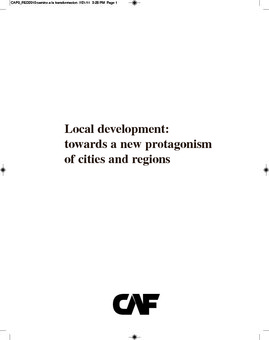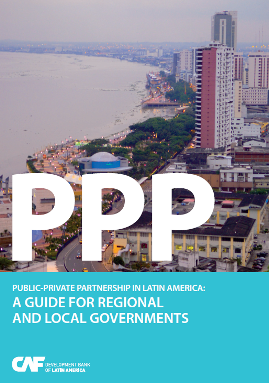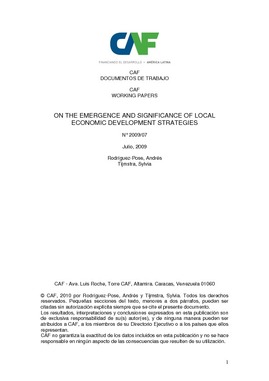Mostrar el registro sencillo del ítem
Decentralizing Development: Evidence from Government Splits
| dc.contributor.author | Dahis, Ricardo | |
| dc.contributor.author | Szerman, Christiane | |
| dc.coverage.spatial | América Latina y el Caribe | es_ES |
| dc.date.accessioned | 2024-09-27T20:45:34Z | |
| dc.date.available | 2024-09-27T20:45:34Z | |
| dc.date.issued | 2024-07 | |
| dc.identifier.citation | Dahis, R., & Szerman, C. (2024, July). Decentralizing Development: Evidence from Government Splits. Retrieved from https://scioteca.caf.com/handle/123456789/2297 | en_GB |
| dc.identifier.uri | https://scioteca.caf.com/handle/123456789/2297 | |
| dc.description.tableofcontents | Changes in political boundaries aimed at devolving power to local governments are common in many countries. We examine the economic consequences of redistricting through the creation of smaller government units. Exploiting reforms that led to sharp variations in the number of government units in Brazil, we show that voluntary redistricting increases the size of the public sector, public services delivery, and economic activity in new local governments over the long term. The gains in economic activity are not offset by losses elsewhere and are stronger in peripheral and remote backward areas neglected by their parent governments. We provide evidence that decentralizing decision-making power boosts local development in disadvantaged areas beyond simply gains in fiscal revenues. | es_ES |
| dc.language.iso | en | es_ES |
| dc.rights | CC-BY-NC-ND | es_ES |
| dc.rights.uri | http://creativecommons.org/licenses/by-nc-nd/4.0/ | es_ES |
| dc.subject | Desarrollo | es_ES |
| dc.subject | Economía | es_ES |
| dc.subject | Gobernabilidad | es_ES |
| dc.title | Decentralizing Development: Evidence from Government Splits | es_ES |
| dc.type | Article | es_ES |
Ficheros en el ítem
Este ítem aparece en la(s) siguiente(s) colección(ones)
-
6.1 Documentos de trabajo en investigación socioeconómica
En esta colección se encuentran los documentos de trabajo sobre temas económicos y sociales prioritarios para la región.





